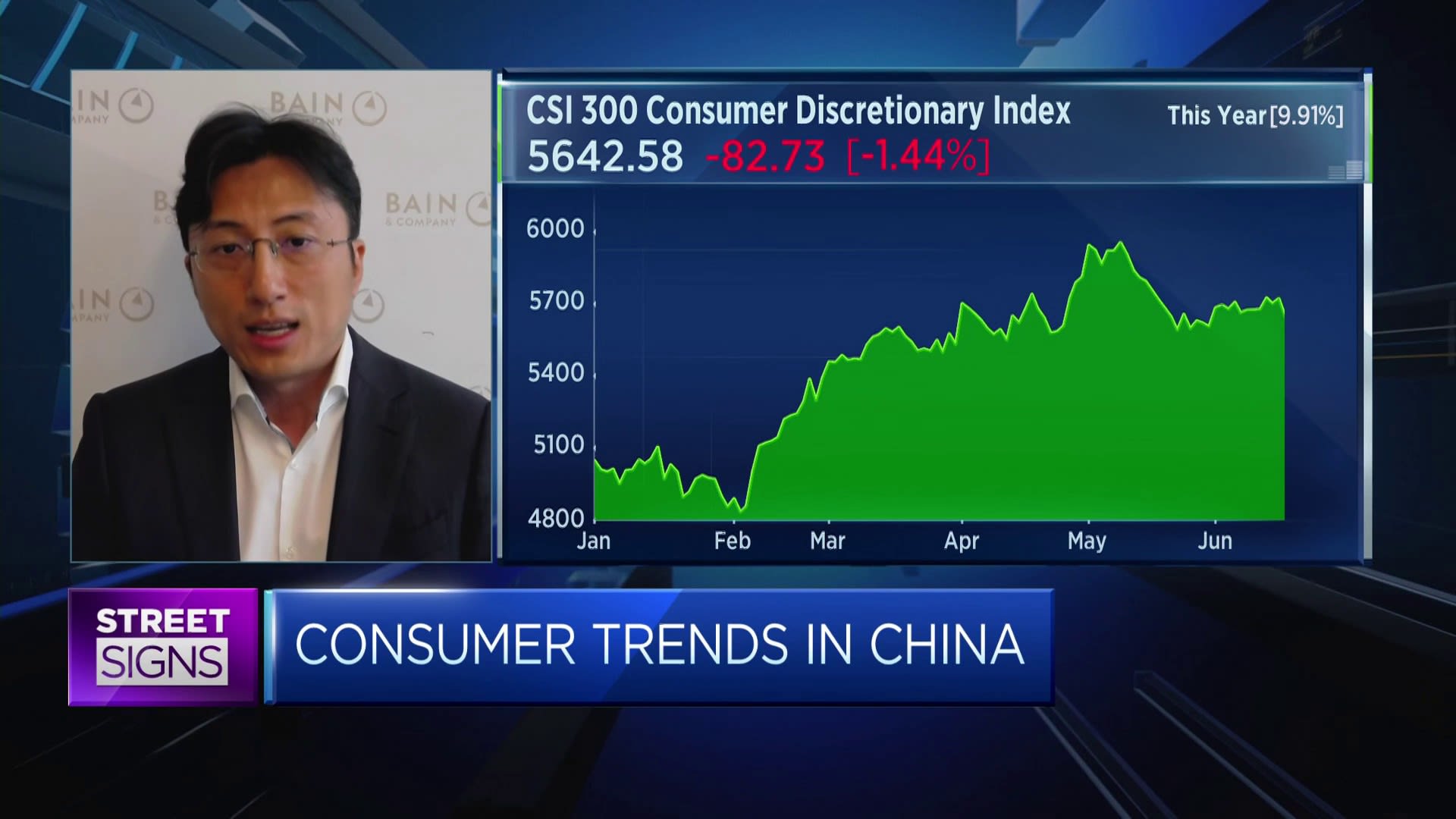China’s rich are turning their backs on flaunting their wealth as the economy faces headwinds, putting the country’s luxury market under pressure.
D3sign | Moment | Getty Images
China’s rich are growing more cautious about flaunting their wealth as the economy faces headwinds, putting the country’s luxury market under pressure.
There are emerging signs of so-called “luxury shame” in China, in the face of a challenging macroeconomic environment, sluggish GDP growth and weak consumer confidence — which have hurt consumption among the middle class, according to a June report by consultancy group Bain and Company.
“It’s not to say that they are not willing to spend on luxury — actually, on some of the top players, we continue to see very strong performance in China, but it’s just some of the aspirational consumption that people are getting more cautious around, and will continue to do so,” senior partner at Bain & Company Derek Deng told “Squawk Box Asia” last month.
“Wealthy customers are afraid of being seen as too ostentatious or too showy,” Claudia D’Arpizio, partner partner and global head of fashion and luxury at Bain & Company, told CNBC in a separate interview.
To be clear, the term is not new.
“We call it luxury shame similarly [to] what happened in the U.S. in 2008-2009,” D’Arpizio said. “Even people that can afford to buy these products have less willingness to do so, [in order] not to be seen as really buying or wearing very expensive products.”

Instead, Chinese consumers are increasingly going for the “quiet luxury” style, investment pieces, and luxury goods that are “more subtle” and “less visible,” she added.
China is the world’s second-largest economy and home to over 98,000 of the world’s ultra-high-net-worth individuals — those with a net worth of more than $30 million, second only to the United States.
However, the economy has been under pressure post-Covid, amid expectations of slowing growth and lackluster consumption.
As the country continues to grapple with high youth unemployment and troubles in its real estate market, some Chinese shoppers are turning away from ostentation amid the economic uncertainty.
Even though the global personal luxury goods sector is expected to grow modestly, up to 4% or as much as $420 billion, China’s luxury market is “struggling” and “overall contracting,” Bain said in the report.
Crackdown on ‘wealth flaunting’
China’s political positioning has also played a role in the “luxury shame” felt by Chinese consumers.
“In general, people are more subtle at times,” Kenneth Chow, principal at Oliver Wyman, told CNBC. “The government has been pushing for common prosperity, and they have been discouraging any sort of money worshiping.”
Common prosperity, first mentioned in the 1950s by Mao Zedong, was reintroduced in 2021 by the Chinese government to create moderate wealth for all.
In May, China began to crackdown on “wealth flaunting,” and banned a couple of online influencers — often known for their lavish lifestyles — from Chinese social media sites.
“I think this is a lot linked to the government posture,” D’Arpizio said. The country’s common prosperity campaign has created a psychological impact on the Chinese, as some of the country’s wealthy individuals have started to move money out of the country, she added.
There are emerging signs of so-called “luxury shame” in China, in the face of a challenging macroeconomic environment, sluggish GDP growth and weak consumer confidence — which have hurt consumption.
Asiavision | E+ | Getty Images
“Also during a time when the economy is more uncertain, historically, we’ve seen in other countries … that the richer and more affluent population will be more hesitant to flaunt their wealth in front of the public,” said Chow.
“As a result … we do see that across the board, Chinese consumers have become more rational,” Imke Wouters, partner at consulting firm Oliver Wyman, told CNBC. “They really want to see a correlation between price and value … they just think twice before buying the most expensive [thing].”
The Chinese consumer is becoming more “sophisticated,” said Bain’s Deng. While they used to be more willing to pay a premium for foreign brands, today, many of them are making purchases based on a product’s quality or the value proposition a brand has to offer.

